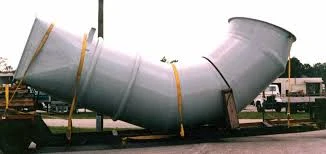
-
 Afrikaans
Afrikaans -
 Albanian
Albanian -
 Amharic
Amharic -
 Arabic
Arabic -
 Armenian
Armenian -
 Azerbaijani
Azerbaijani -
 Basque
Basque -
 Belarusian
Belarusian -
 Bengali
Bengali -
 Bosnian
Bosnian -
 Bulgarian
Bulgarian -
 Catalan
Catalan -
 Cebuano
Cebuano -
 China
China -
 China (Taiwan)
China (Taiwan) -
 Corsican
Corsican -
 Croatian
Croatian -
 Czech
Czech -
 Danish
Danish -
 Dutch
Dutch -
 English
English -
 Esperanto
Esperanto -
 Estonian
Estonian -
 Finnish
Finnish -
 French
French -
 Frisian
Frisian -
 Galician
Galician -
 Georgian
Georgian -
 German
German -
 Greek
Greek -
 Gujarati
Gujarati -
 Haitian Creole
Haitian Creole -
 hausa
hausa -
 hawaiian
hawaiian -
 Hebrew
Hebrew -
 Hindi
Hindi -
 Miao
Miao -
 Hungarian
Hungarian -
 Icelandic
Icelandic -
 igbo
igbo -
 Indonesian
Indonesian -
 irish
irish -
 Italian
Italian -
 Japanese
Japanese -
 Javanese
Javanese -
 Kannada
Kannada -
 kazakh
kazakh -
 Khmer
Khmer -
 Rwandese
Rwandese -
 Korean
Korean -
 Kurdish
Kurdish -
 Kyrgyz
Kyrgyz -
 Lao
Lao -
 Latin
Latin -
 Latvian
Latvian -
 Lithuanian
Lithuanian -
 Luxembourgish
Luxembourgish -
 Macedonian
Macedonian -
 Malgashi
Malgashi -
 Malay
Malay -
 Malayalam
Malayalam -
 Maltese
Maltese -
 Maori
Maori -
 Marathi
Marathi -
 Mongolian
Mongolian -
 Myanmar
Myanmar -
 Nepali
Nepali -
 Norwegian
Norwegian -
 Norwegian
Norwegian -
 Occitan
Occitan -
 Pashto
Pashto -
 Persian
Persian -
 Polish
Polish -
 Portuguese
Portuguese -
 Punjabi
Punjabi -
 Romanian
Romanian -
 Russian
Russian -
 Samoan
Samoan -
 Scottish Gaelic
Scottish Gaelic -
 Serbian
Serbian -
 Sesotho
Sesotho -
 Shona
Shona -
 Sindhi
Sindhi -
 Sinhala
Sinhala -
 Slovak
Slovak -
 Slovenian
Slovenian -
 Somali
Somali -
 Spanish
Spanish -
 Sundanese
Sundanese -
 Swahili
Swahili -
 Swedish
Swedish -
 Tagalog
Tagalog -
 Tajik
Tajik -
 Tamil
Tamil -
 Tatar
Tatar -
 Telugu
Telugu -
 Thai
Thai -
 Turkish
Turkish -
 Turkmen
Turkmen -
 Ukrainian
Ukrainian -
 Urdu
Urdu -
 Uighur
Uighur -
 Uzbek
Uzbek -
 Vietnamese
Vietnamese -
 Welsh
Welsh -
 Bantu
Bantu -
 Yiddish
Yiddish -
 Yoruba
Yoruba -
 Zulu
Zulu
frp customized product
The Rise of Customized FRP Products Tailored Solutions for Diverse Industries
In recent years, the demand for specialized materials in various industries has led to significant advancements in the production of customized products, particularly in the realm of Fiber Reinforced Polymer (FRP). FRP is a composite material made from a polymer matrix reinforced with fibers, such as glass, carbon, or aramid. Its unique properties—such as exceptional strength-to-weight ratio, corrosion resistance, and thermal stability—make it an ideal choice for a wide range of applications.
The Flexibility of FRP Customization
One of the most attractive features of FRP is its versatility. Companies can tailor FRP products to meet specific requirements, addressing the varying needs of different sectors. Whether in construction, aerospace, automotive, or marine applications, customized FRP solutions enable businesses to achieve optimal performance while also enhancing the longevity and efficiency of their products.
For example, in the construction industry, customized FRP can be designed to fit unique architectural specifications, providing structural support while reducing the weight of building systems. In maritime applications, FRP components can be designed to withstand harsh saltwater environments, preventing corrosion, and extending the lifespan of vessels.
Tailored Solutions for Complex Problems
The ability to customize FRP products allows manufacturers to address complex industry challenges effectively. For instance, the aerospace industry benefits from lightweight yet durable materials for aircraft manufacturing. Customized FRP components can be engineered to reduce overall weight, which in turn improves fuel efficiency and performance. The use of advanced computer-aided design (CAD) technologies and manufacturing techniques—such as filament winding and resin transfer molding—enables precision in creating parts that meet stringent safety and performance standards.
frp customized product

Similarly, in the automotive industry, the demand for lightweight vehicles that deliver energy efficiency has led to the customization of FRP components. By integrating tailored FRP products, manufacturers can reduce vehicle weight, which enhances fuel efficiency without compromising safety or structural integrity. In this way, FRP customization not only solves technical issues but also aligns with the growing consumer demand for sustainable and eco-friendly products.
The Role of Technology in Customization
Advancements in technology play a crucial role in the ability to produce customized FRP products. Digital tools and automation in manufacturing processes have significantly reduced lead times and costs associated with customization. Techniques such as 3D printing and advanced composite layup allow for rapid prototyping and iterations, enabling companies to test and refine their designs efficiently.
Furthermore, technologies such as artificial intelligence and machine learning are beginning to influence the FRP customization process. By analyzing data trends and customer feedback, manufacturers can better predict market needs and develop customized solutions that address emerging challenges in various industries. This approach not only enhances customer satisfaction but also fosters innovation within the field.
Conclusion
The customization of FRP products is more than just a trend; it is a response to the diverse and evolving needs of various industries. As companies strive for greater efficiency, sustainability, and performance, tailored FRP solutions offer an opportunity to meet these demands. With continued advancements in technology and manufacturing processes, the future of customized FRP products looks promising, paving the way for innovations that will shape industries and improve the way we interact with our environment. The journey of FRP customization is just beginning, and it is poised to revolutionize the materials landscape for years to come.









